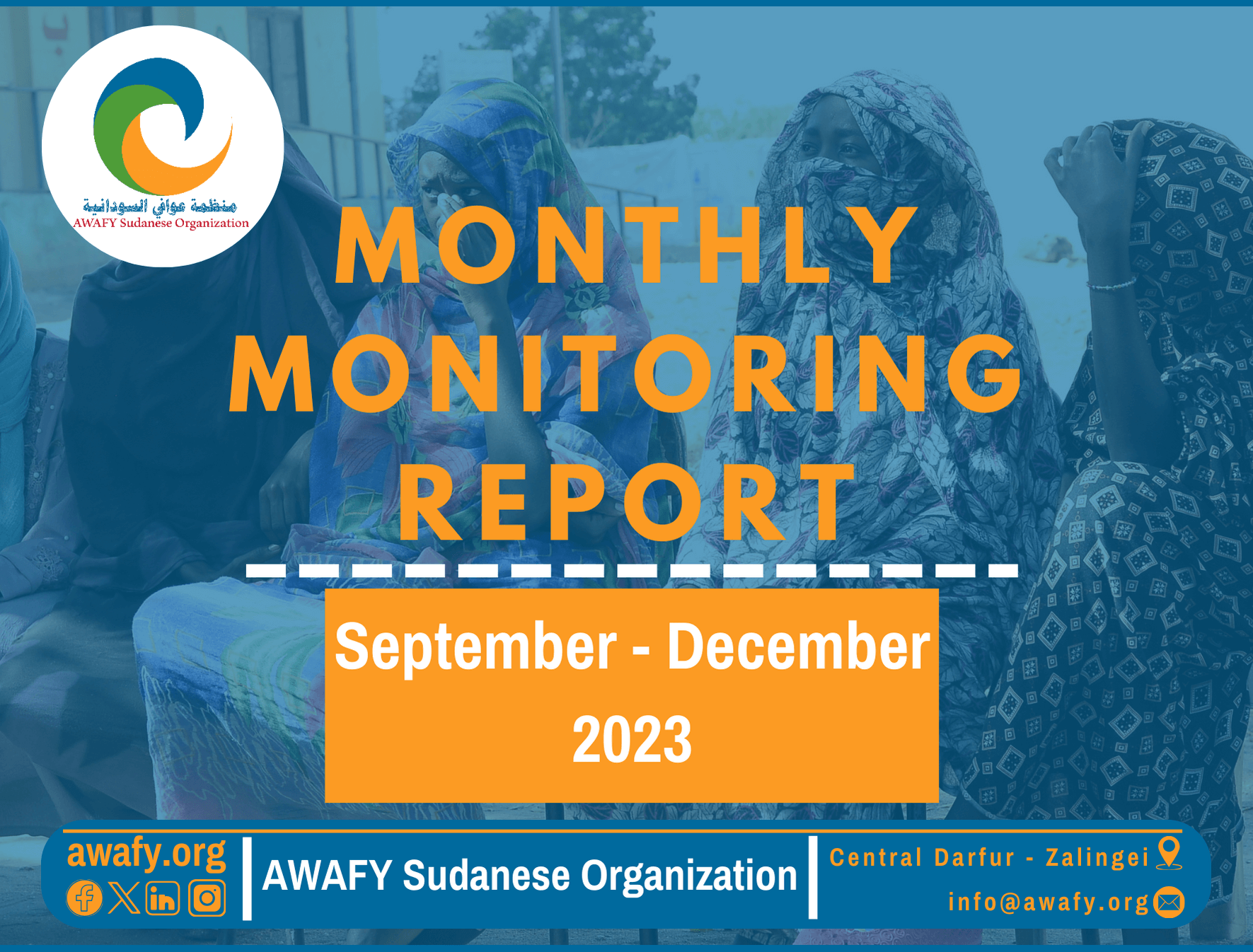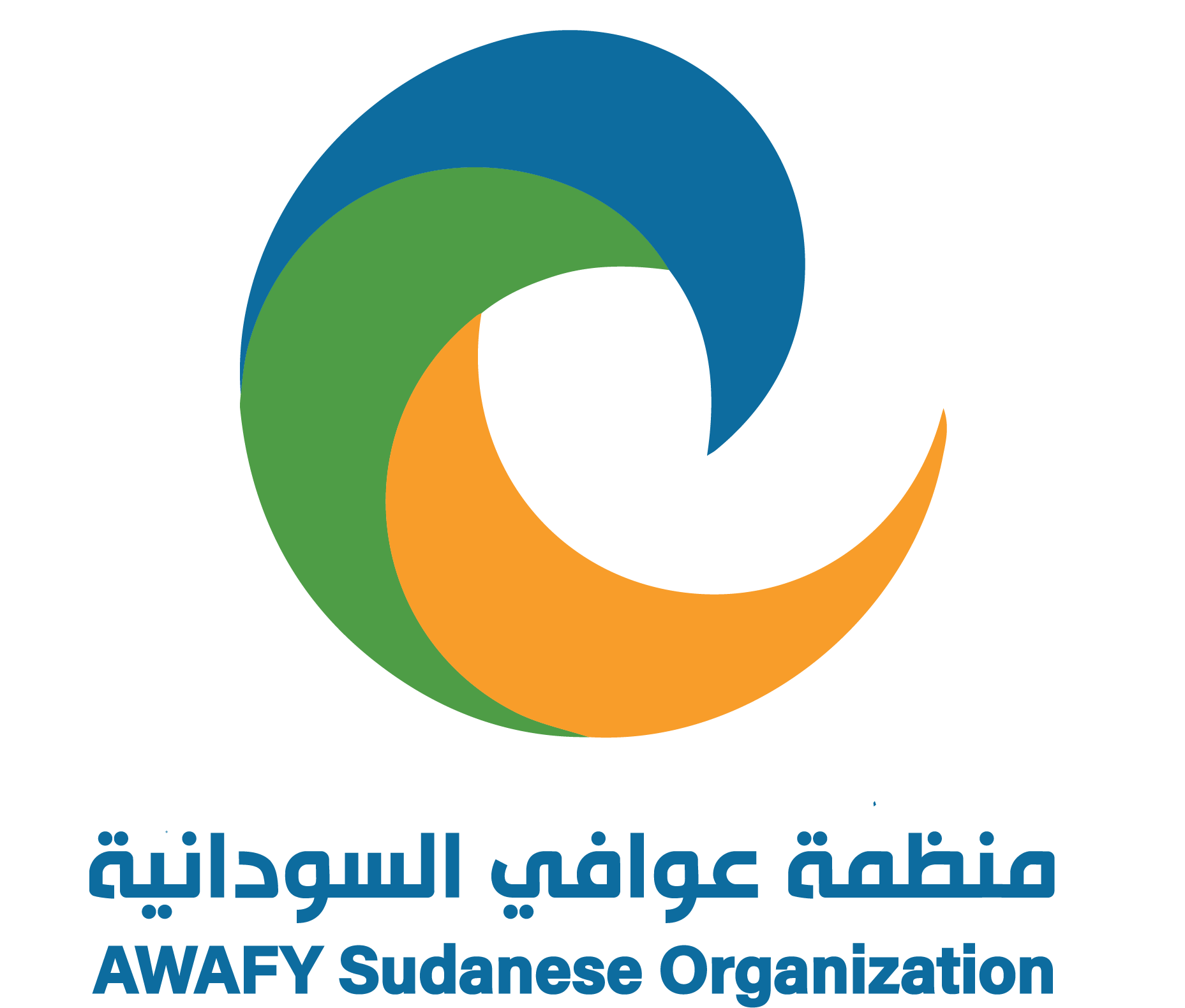The country has been and continues to be a tool of violence. It has been cultivating numerous victims since Sudan gained independence. The ongoing war that broke out on April 15, 2023, and began in the capital city, Khartoum, between the Sudanese Armed Forces and the quasi-military RSF is considered one of the harshest and most brutal armed conflicts against Sudanese citizens. Although the hostilities began in the capital city, Khartoum, the confrontations quickly spread to the states, localities, and cities, and exacerbated the security and humanitarian situations. This has led to numerous violations, resulting in a humanitarian, security, and economic crisis that is among the most significant crises in the twenty-first century. Reports from the United Nations Office for the Coordination of Humanitarian Affairs (OCHA) indicate that more than 7.4 million people have been displaced within and outside Sudan, with over 12,000 civilians killed.
Central Darfur State is among the most severely affected in this war, experiencing high rates of violations and atrocities, as it has been grappling with conflicts since 2003 and the subsequent security implications leading up to this war. Currently, the state and its localities have witnessed a series of violations since the outbreak of the conflict in April, resulting in numerous casualties, injuries, arrests, and displacement of citizens internally towards safe localities within the state and areas under the control of the Sudan Liberation Movement led by Abdul Wahid Noor, as well as externally towards neighboring countries. Amid the highly complex humanitarian conditions, a multitude of serious human rights violations, amounting to war crimes and crimes against humanity have occurred against civilians which include extrajudicial killings, abduction, arbitrary detention, enforced disappearance, torture, rape, forced displacement, mockery, extortion, looting, and theft, with systematic threatening and targeting of civilian individuals, healthcare personnel, societal symbols, activists, and human rights defenders. Additionally, there has been deliberate destruction of infrastructure, public facilities, and vital facilities such as hospitals, not militarily justified, coupled with systematic pushing communities there to poverty through property theft, home occupation, and looting of markets, commercial establishments, and banks. According to international law, these mentioned actions fall within the gross violations of economic and social rights.
Furthermore, these violations impacted the city of Zalingei-the capital of Central Darfur state- which has witnessed a severe shortage of food supplies, complete deterioration in the health conditions after the cessation of Zalingei Hospital’s operations, which is considered the main provider of health services in the state. This is compounded by the lack of medical resources and the complete absence of international and national organizations working in the health sector after the looting of their headquarters. At a time when citizens needed medicine, healthcare, and treatment, continuous internal displacement and forced displacement occurred, affecting neighborhoods areas (Al-Estad, Al-Gharbi, the extension of Al-Muhafazin, Al-Hasahisa camp) due to clashes between the army, RSF, and affiliated militias.
Central Darfur localities experienced similar conditions to those of Zalingei, relying primarily on the transportation of food and health supplies from Zalingei. Additionally, there were recorded cases of killings, rape, injuries, torture, arrests, looting, and theft of public and private facilities, coupled with imposing taxes on civilians in southern localities, especially in localities (Azum, Mokjar, Bindisi). Again, these activities were carried out by the RSF members and affiliated militias. Also noteworthy is the displacement witnessed in localities like (Um Dokhon, Mokjar) due to ethnic conflicts between the (Salamat and Banei Halba) tribes in areas of (Kabum, Astani, Sendo, Balda), creating a state of security fluidity in the region.
One of the notable events in the state was the cutting of communication networks by the Rapid Support Forces on May 17, 2023, and it has not been restored until the issuance of this report. As a result, a wave of panic and fear was witnessed among civilians inside and outside the state, as citizens outside the state could not lose contact with their families inside the state and faced difficulties in obtaining information about the overall condition of the state. However, despite the introduction of satellite communication services (Starlink) in some localities, some individuals face challenges in accessing these services due to the high cost, where citizens pay 2,000 Sudanese pounds for one hour of use. It only provides internet services.
The aforementioned conditions collectively constitute obvious violations of international humanitarian law, the protocols appended to the Geneva Convention, and international human rights law.

